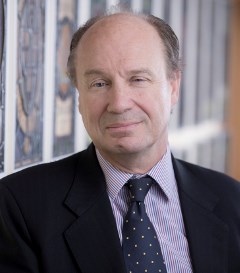As the Government’s review of Solvency II commences our Director of Regulation, Hugh Savill, draws on learnings from history to discuss what the process could mean for insurers.

The liturgical rites and choral masses appropriate to the European Union’s 2020 Review of Solvency II are proceeding at stately pace in Brussels. Last week the British Treasury launched their own Review of Solvency II. What are faithful insurers to do?
I believe it is always helpful to draw lessons from historical precedent. In 1378, after a number of unseemly episodes, the Catholic Church found itself with two Popes, Urban VI in Rome, and Clement VII in Avignon. The Schism lasted till 1417, and for the final seven years there were even three Popes. Will this happen to Solvency II, with identically named but slightly different prudential regimes developing in the EU and the UK?
I believe it is always helpful to draw lessons from historical precedent.
Clerical circles in Brussels are quick to mutter about “divergence” from the true faith of Solvency II as set out in Brussels. And nobody could deny the key role played by Cardinal Karel van Hulle in finalising the text.But there are good arguments that the Solvency II credo was first established in London. The initial thinking around Solvency II was done by Paul Sharma, the revered FSA theologian, with his 2002 Encyclical. And Solvency II was based on the British ICA discipline. By this logic, it is in fact the Brussels 2020 Review that is diverging from the true faith.
But what about the faithful? Who are they to believe? Pope Gabriel in Brussels, or Pope Samuel in London? Will they denounce each other from their pulpits and excommunicate each other for failure to ensure equivalence? This would be very worrying for devout insurers. My practical advice would be not to bother too much about the high theology, and to continue to make your confessions in private to your supervisor.
As with the Papal Schism, there are no great doctrinal differences between the rival Popes. Both of them are beginning to have doubts - not before time - about the sanctity of the Risk Margin doctrine, which produces a large number of artificial sins, all of which have to be atoned for in cash. And worse, the magnitude of the sins fluctuates unmanageably. Nothing is more galling for a CFO than to find that they have paid for sins that they subsequently find they have not committed.
There are of course some differences. The British document covers 36 pages in comparison to the 878 pages in The EU document. Malicious suggestions in Brussels that this is due to a shortage of parchment in the UK in the run-up to Brexit are wide of the mark - as can be seen from the many other pages of parchment emerging from 20 Moorgate.
Being Pope carries with it the handy attribute of infallibility. This can be awkward for dissident theologians and lobbyists, but may explain the healthy competition for papal status. To be fair, most prudential regulators think they are infallible anyway.
Sadly, historians record that the Papal Schism led to a decline in the morality and discipline of the Church. And in some parts of Europe war broke out between followers of Rome and Avignon. I am comforted by the thought that nothing so stupid could ever happen nowadays.
